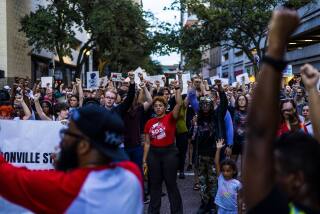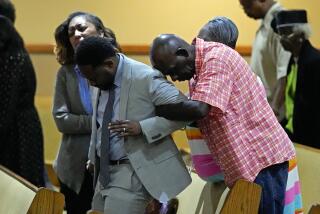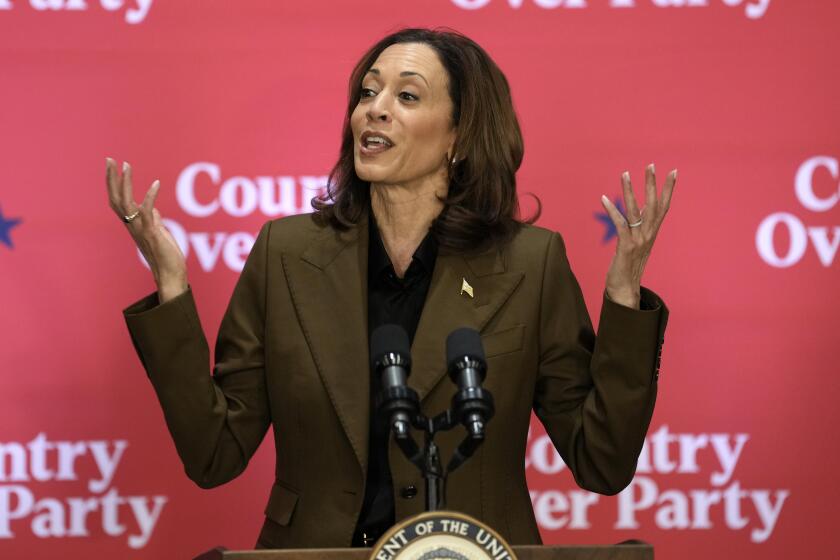Trayvon Martin case: In Sanford, Fla., hundreds speak as one
SANFORD, Fla. -- The nation’s leading civil rights advocates and hundreds of outraged people packed this laid-back lakeside community Monday to demand the arrest of the man who killed African American teenager Trayvon Martin, even as city police sources revealed details of the confrontation that portrayed the unarmed Martin as the aggressor.
Beneath an incongruously cheerful Florida sun, the passionate but well-behaved crowd marched, chanting and shouting, toward the Sanford civic center, where, inside, the City Commission ceded most of its regularly scheduled meeting to Martin’s grieving parents, their lawyer and a roster of civil rights luminaries.
Speakers were largely unsparing in their criticism of the city’s leadership and its handling of a case that, to some, has become a symbol of a lingering American racism and a justice system that too often fails black victims of violence.
The Rev. Jesse Jackson compared city leaders to Pontius Pilate for failing to arrest George Zimmerman, the man who said he shot down Martin in self-defense after reporting him to police as a suspicious person, and then apparently confronting him.
Pilate, Jackson said, was just as guilty “as those who held the hammer and the nail.”
Marc Morial, president of the National Urban League, compared the case to the notorious 1955 lynching of Emmett Till, in Mississippi, which catalyzed the midcentury civil rights movement. “We will not rest, we will not stop, until there is justice for Trayvon Martin,” he said.
The Rev. Al Sharpton warned that sleepy Sanford, on the shores of Lake Monroe just north of Orlando, was flirting with worldwide infamy.
“Sanford is a beautiful city,” Sharpton told the commission, but “you are risking going down as the Birmingham and Selma of the 21st century.”
It was a largely, but not exclusively, African American crowd. Lanny Lamb, 74, a white retiree who grew up in Texas, hobbled along in a Hawaiian shirt and Panama hat, a fat cigar between his fingers.
“There’s no legalized murder,” Lamb said in a booming Texas basso, saying he was unable to march in civil rights demonstrations in decades past because he was in the Navy at the time. “This is my chance to stand up and do what’s right.”
RELATED:
Trayvon Martin case: What does the autopsy say?
Trayvon Martin case gives Change.org a boost -- and vice versa
Trayvon Martin case: ‘Blacks are under attack,’ says Jesse Jackson
More to Read
Sign up for Essential California
The most important California stories and recommendations in your inbox every morning.
You may occasionally receive promotional content from the Los Angeles Times.










